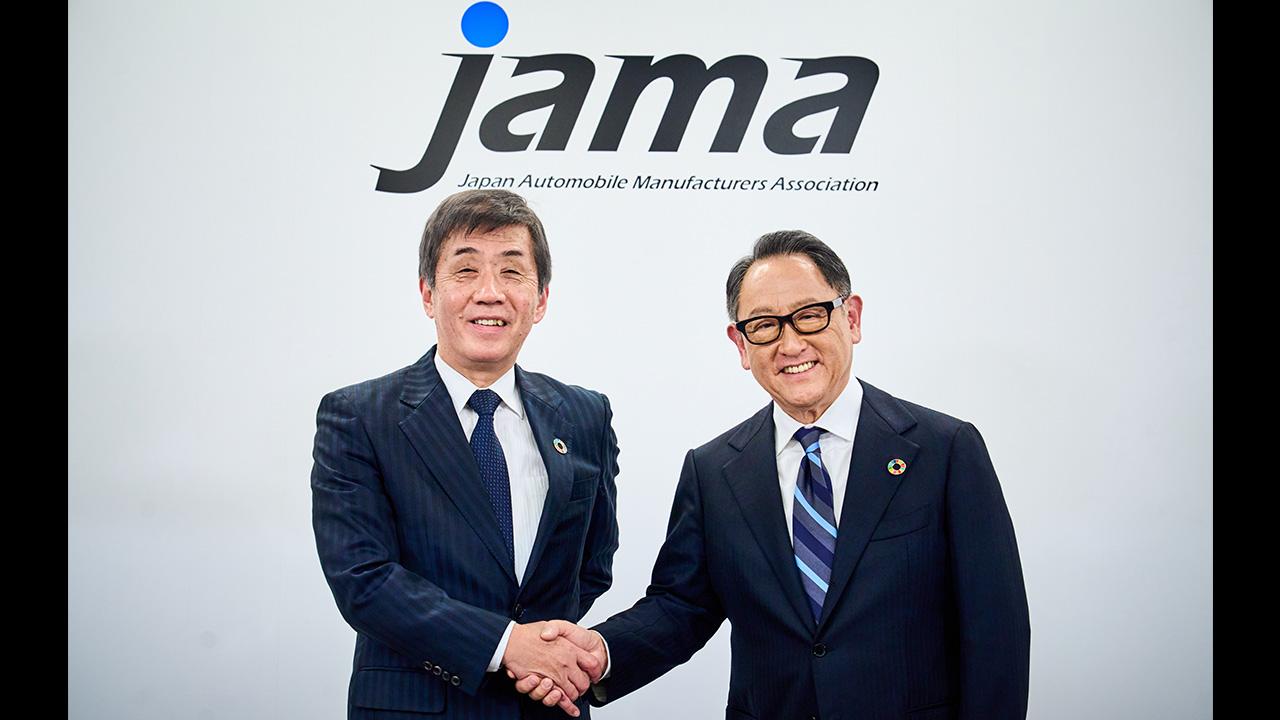
The first step towards a new mobility future begins with logistics and commercial vehicles. With Isuzu Chairman Masanori Katayama picked to lead JAMA, what lies ahead?

On November 22, the Japan Automobile Manufacturers Association (JAMA) held its first in-person press conference in four years. We share the discussion that unfolded before the assembled reporters.
An urgent issue to tackle together
Chairman Toyoda (Toyota)
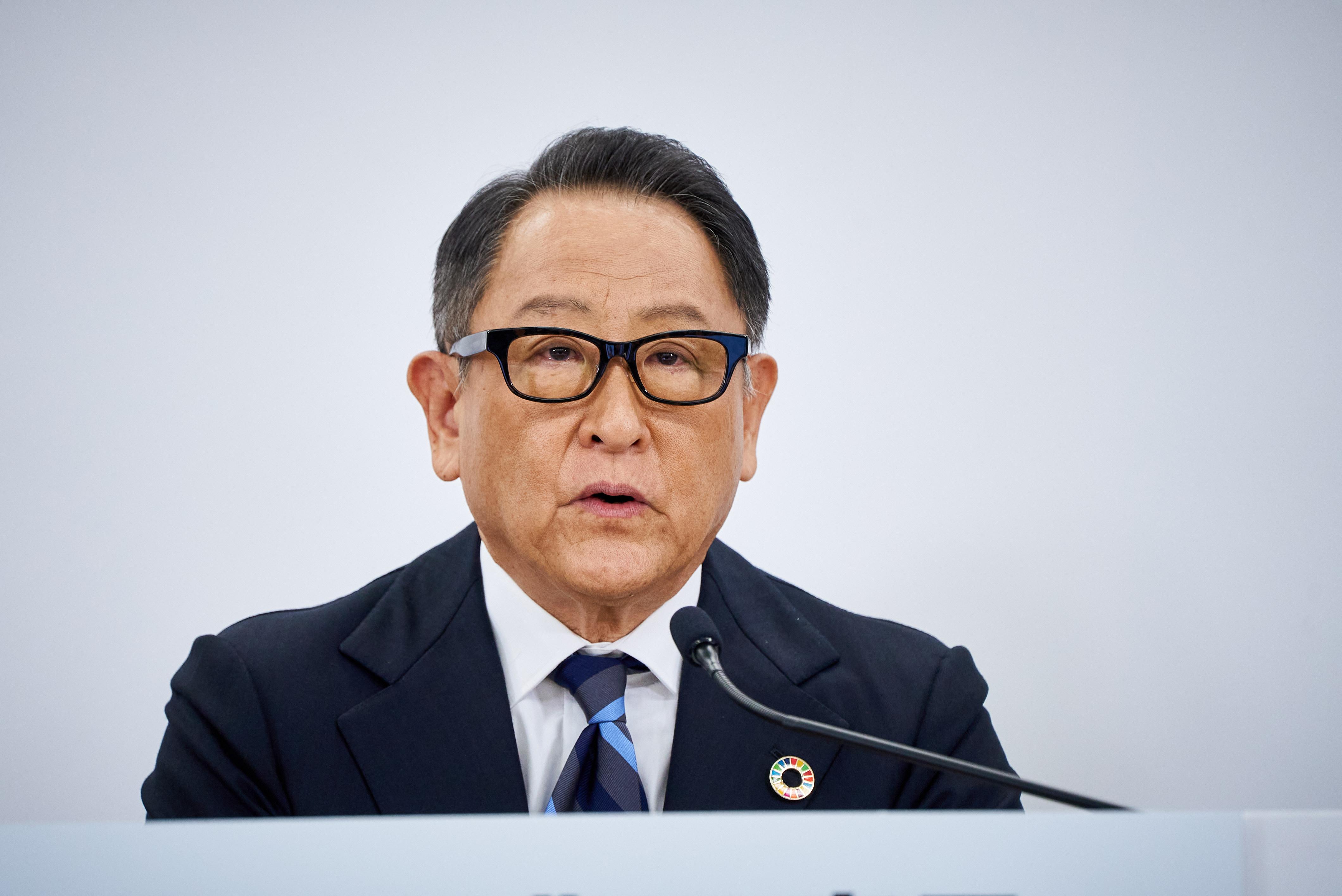
Thanks to the support and efforts of countless people, our first JAPAN MOBILITY SHOW closed on a high note.
Attendance increased with each day, ultimately exceeding our target with a total of 1,112,000 visitors, or 100,000 people per day.
As the organizers, I think we can call the event a success.
We would like to take this opportunity to express our sincere gratitude to everyone who attended, along with all those involved. Thank you very much.
Now, following the board’s decision earlier today, I have the pleasure of announcing the new JAMA leadership team starting in January next year.
The logistics and commercial vehicles sector is currently a major topic of discussion, not least because of the 2024 problem.
This sector has many areas that require cooperation moving forward, including fleet and energy management, while also allowing for clear deadlines.
With clearly defined challenges and timelines, we can take action toward solutions.
And this action will fuel future efforts to achieve carbon neutrality in passenger cars and motorcycles.
We have recognized that working together to tackle the urgent issue of the logistics and commercial sector is a key step toward the future. In this regard, today, the board asked Isuzu’s Mr. Katayama, who possesses extensive experience in the world of heavy-duty vehicles, to be the next chairman.
The other six current vice chairmen will continue in their roles, each representing a part of Japan’s full automotive lineup.
They will lead a JAMA secretariat of 108 members.
This team will steadfastly support Chairman Katayama in the new calendar year.
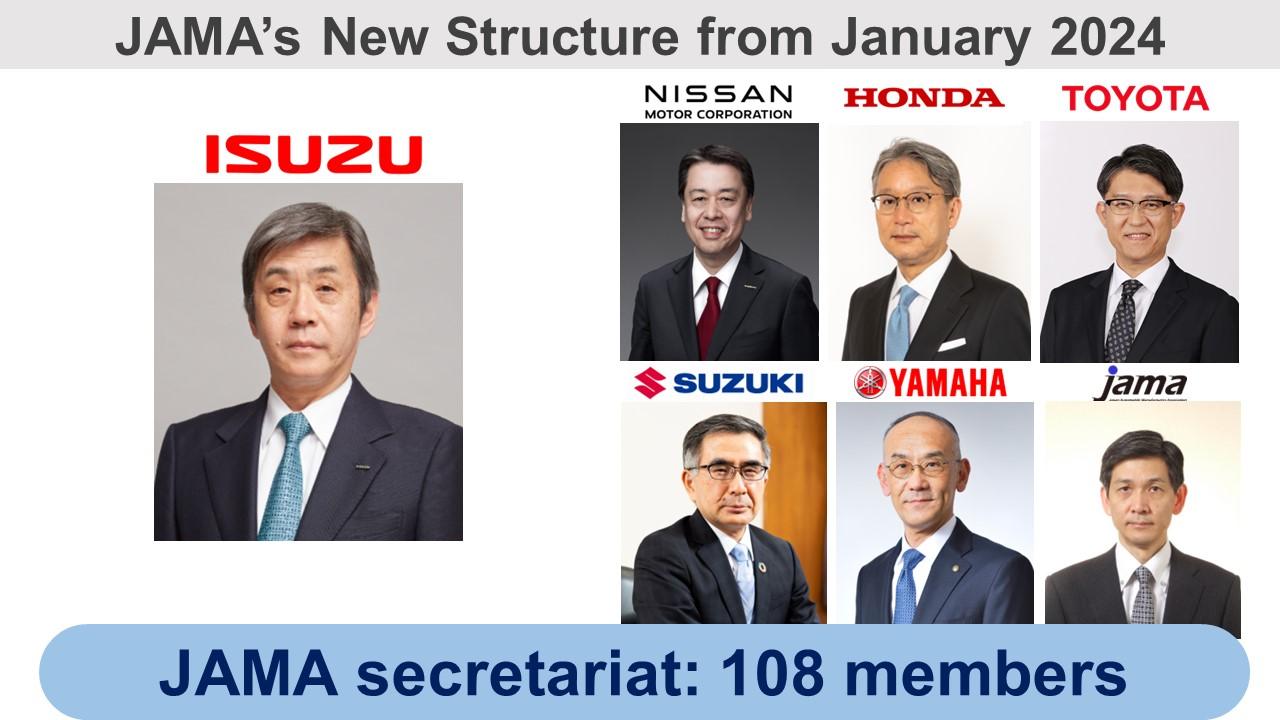
Five years ago, when I took office as chairman, I told JAMA members:
“In the past, things may have been shaken up with each new chairman. Let’s work together to establish an unwavering core for the organization so that won’t happen.
Despite being a small team of 100, we speak for the 5.5 million people in Japan’s auto industry. I want you to be mindful of the fact that you are carrying the thoughts of all your peers.”
Over these five years, I think the biggest change has been in the people of JAMA’s secretariat, and the Mobility Show symbolizes that change.
“The auto industry stands united as one.”
“The future is ours to create together.”
This has become JAMA’s unwavering core.
Although I am stepping back from JAMA, in the five years I was given, I believe we were able to establish a strong foundation as an industry body supporting the mobility sector.
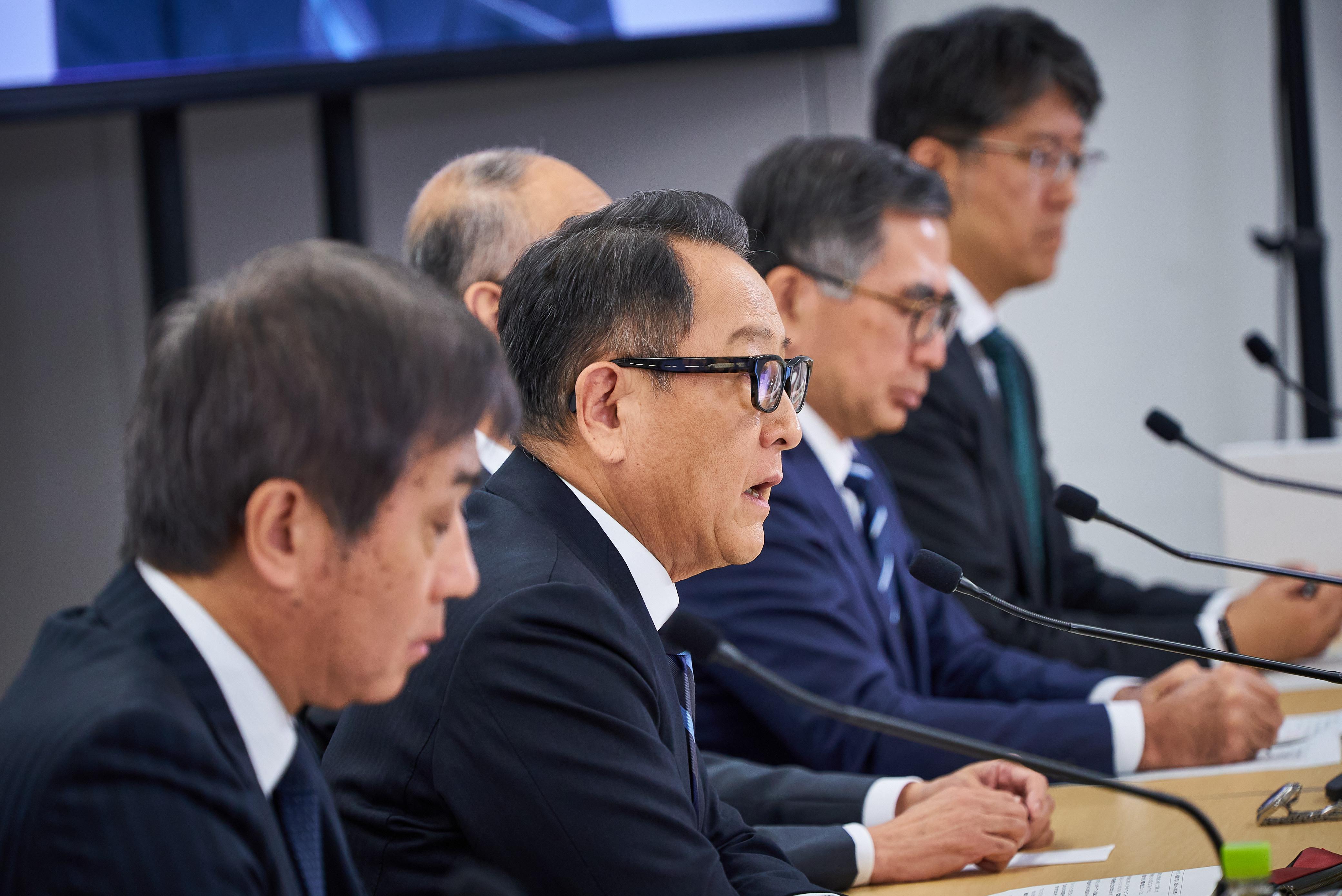
Today, the world is experiencing greater conflict and division.
In these times, as adults, we must be conscious of what we demonstrate and impart to the children who will carry the future.
In Japan, we have a beautiful word [to express gratitude]: Arigato.
As an adult involved in the mobility industry, for the sake of children not yet born, I want to work with many like-minded partners to create a Japan where we can openly say arigato to express our gratitude for each other, as well as create a future underpinned by trust and shared commitment.
We look forward to your continued support of JAMA's efforts.
Following Chairman Toyoda’s announcement of the new team, incoming Chairman Masanori Katayama spoke about the challenges facing the logistics and commercial sectors along with the future of the auto industry.
Turning 5.5 million colleagues into 8.5 million
Incoming Chairman Katayama (Isuzu)
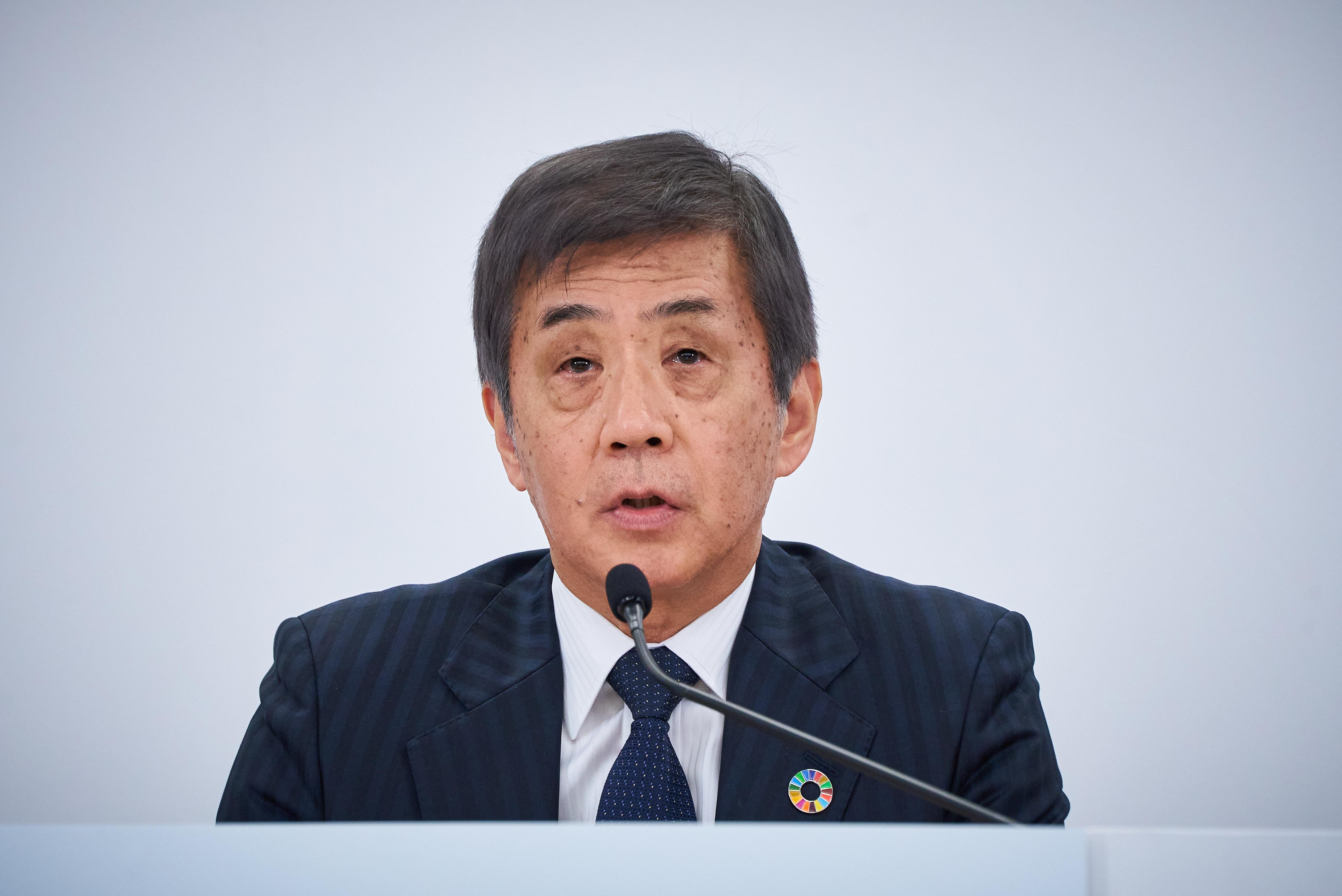
I would like to say a few words as the new chairman of the Japan Automobile Manufacturers Association, as elected at today’s JAMA board meeting.
First, I am honored by the opportunity to serve in this position. At the same time, I am acutely aware of the tremendous responsibility of accepting the chairmanship as the auto industry undergoes a once-in-a-century transformation.
In taking on this role, I would like to express my deepest gratitude to Chairman Toyoda, whose strong leadership has steered the industry over the five years since 2018, as well as a previous two-year term between 2012 and 2014.
He has displayed outstanding, decisive guidance in many aspects of JAMA’s recent reforms. In particular, changes made over the past two years have established a team-led approach to problem-solving.
Our new team pledges to build on this momentum by driving further reforms to tackle the challenges we face boldly.
It is no exaggeration to say that the automotive industry will remain the primary pillar of Japan’s economy, and our organization is a central presence underpinning the industry.
However, we also find ourselves in an era of new challenges and transformation.
The challenges we face are many and varied, spanning from advances in automotive technologies to environmental impacts and market volatility.
Organizing these into seven focus areas for the next several years, we found that many issues require coordinated efforts. These include not only carbon neutrality but also streamlining logistics, fleet management, and the driver shortages typified by the 2024 logistics problem. JAMA’s new leadership team reflects our conclusion that, for the present, the commercial vehicles sector ought to serve as the pacesetter.
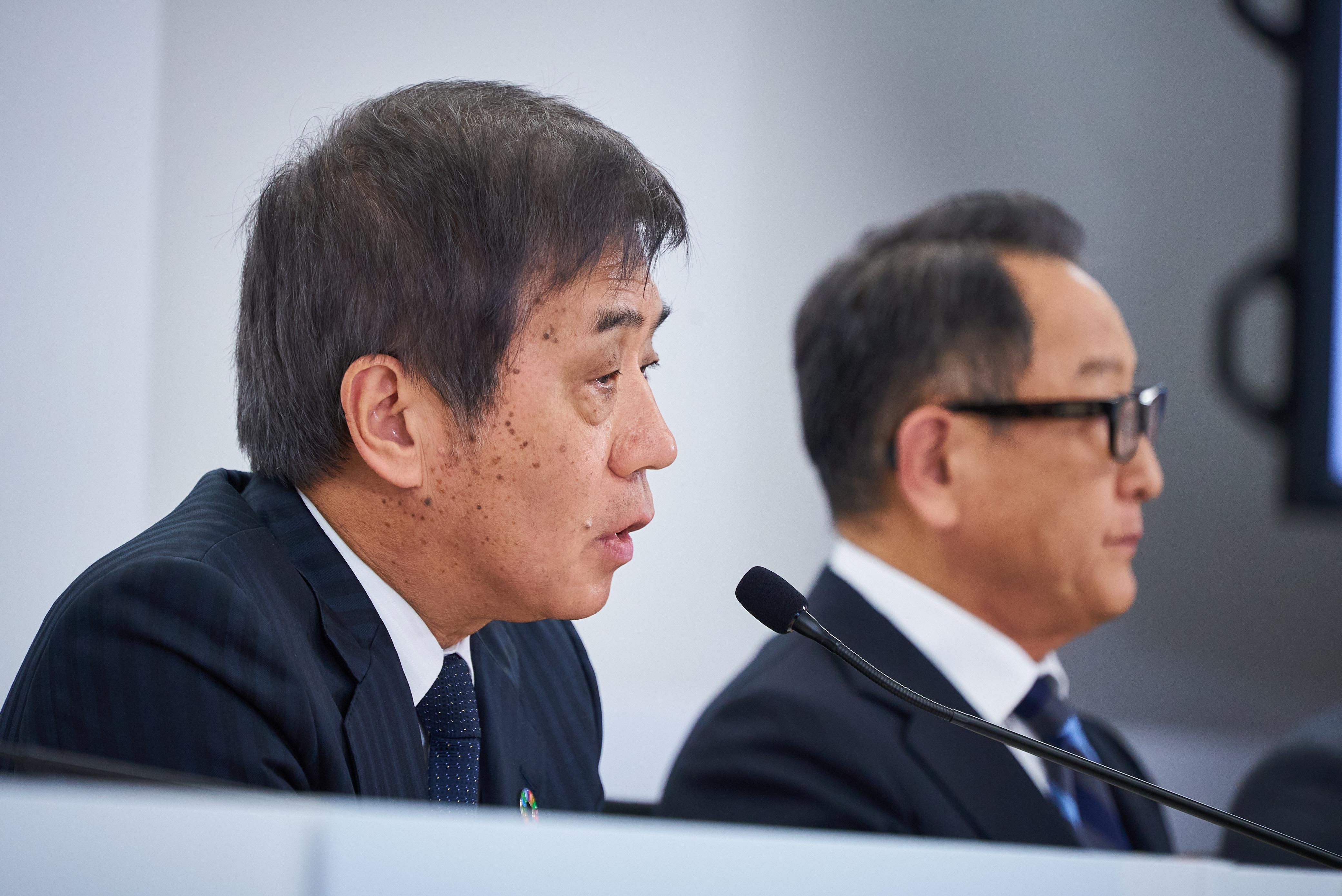
Our vision is to further advance the industry and contribute to society by boldly grappling with these challenges.
Foremost, we will strengthen our environmental contribution, building a sustainable future for automotive technologies and mobility.
The Japan Automobile Manufacturers Association has long advocated for diverse options and a multi-pathway approach, emphasizing that our enemy is carbon, not the internal combustion engine.
A groundswell of support is steadily growing. Carbon-neutral initiatives that embrace local factors and conditions have attracted many like-minded partners, and discussions around topics such as carbon-neutral fuels, for example, are making progress.
Over the next two years, JAMA will place even greater emphasis on our duty to protect the global environment, seeking to contribute by improving energy efficiency and promoting electric vehicles.
At the same time, our industry is changing rapidly, with advances in digitalization and innovative technologies opening up new business models and opportunities.
In response to these changes, we will remain competitive by increasing investment in R&D and cultivating access to new markets.
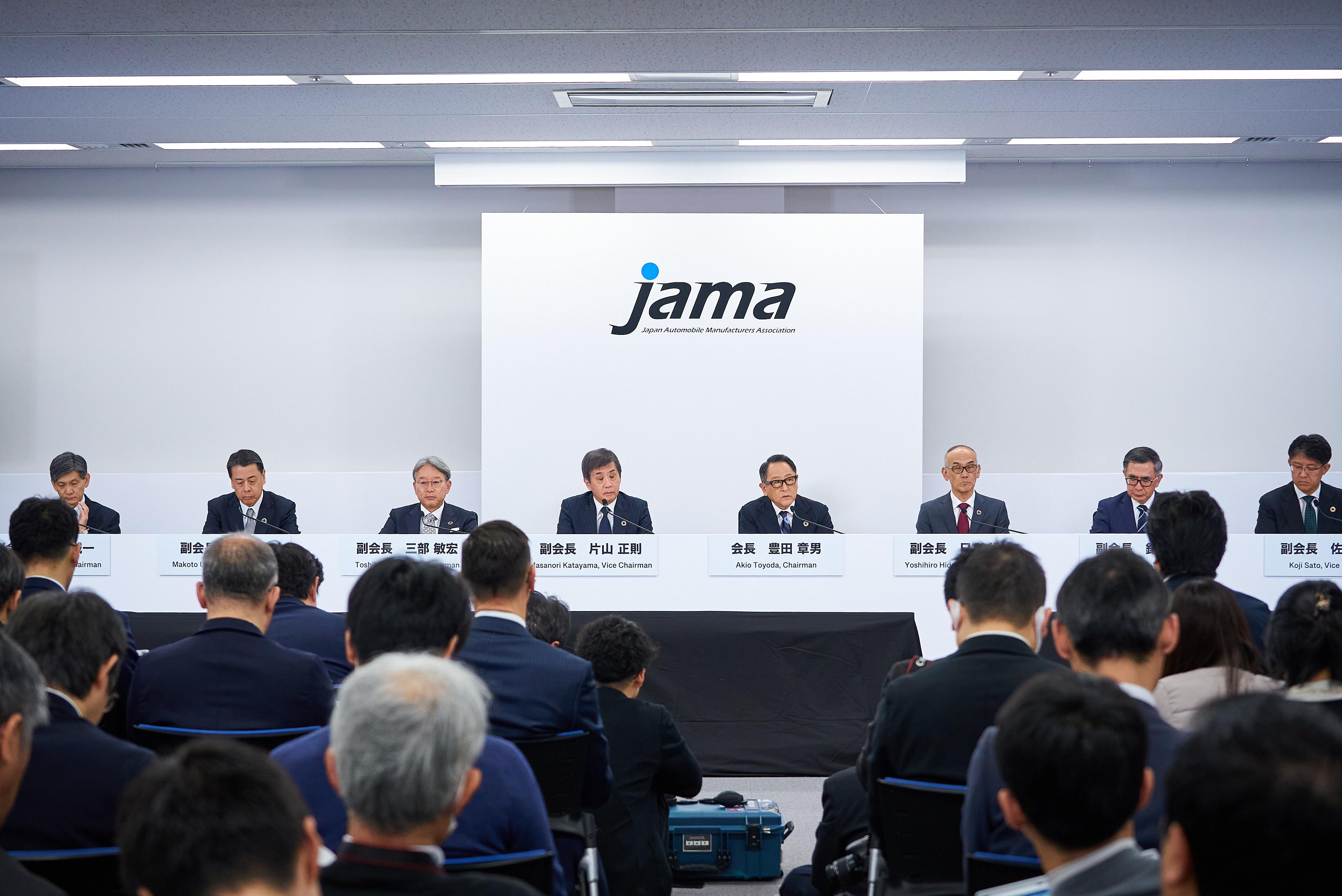
The first JAPAN MOBILITY SHOW was held last month.
With more than 1 million visitors and over 100 participating startups, the event went beyond the realm of traditional motor shows, enabling us to firmly grasp society's hopes for the mobility industry and its potential.
We will continue striving to turn our 5.5 million industry colleagues into 8.5 million. I would like to close by thanking people across all industries.
Without your cooperation and support, we cannot achieve our vision.
I am excited to work with you to strengthen Japan’s automotive industry further and forge the future. You have my sincerest gratitude, and I look forward to building a wonderful future together.

